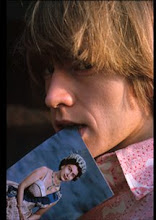


Often considered the British band that could only follow the Beatles and the Stones in terms of success, Manchester's Hollies began when childhood friends Graham Nash and Allan Clarke discovered how well their voices blended on their first day of school in 1947. When the two discovered rock'n'roll and became swept up in the skiffle craze that gripped England in the mid '50s, Nash and Clarke performed as a duo in Manchester's clubs under a variety of names. After the addition of Eric Haydock on bass, Vic Steele on lead guitar and Don Rathbone on drums, the band evolved from the Deltas into the Hollies, so named for the Christmas decoration rather than rock icon Buddy Holly. The band's fame began to grow, leading them to the coveted spot at the Cavern that was once held by the Beatles. In January 1963, they were invited to audition for the Parlophone label.
Steele dropped out of the band because he did not want to go professional, which turned out to be the best thing that could have happened to The Hollies. Tony Hicks, an amazingly skilled lead guitarist, was soon asked to join. When Bobby Elliot joined as the new drummer, the classic Hollies line-up was in place. After a slow start, the Hollies began having hit after hit in their homeland, yet failed to replicate that success in the U.S., due in part to their record label's failures. Yet another line up change led to Haydock being replaced by Bernie Calvert on bass. Despite the set back, the Hollies finally found their American breakthrough hit single - "Bus Stop," written by Graham Gouldman (who also wrote "Heartful of Soul," "For Your Love," and "Evil Hearted You"for the Yardbirds, plus many other hits). Thus began their string of hits in the U.S.: "Stop Stop Stop," "Pay You Back with Interest," "On a Carousel," and "Carrie-Anne." Even when Nash left the Hollies at the end of 1968 to form Crosby, Stills and Nash, the Hollies continued to have great success with singles like "He Ain't Heavy, He's My Brother" and "Long Cool Woman."
I may be in the minority, but my favorite Hollies excursions are their lovely ventures into purely British psychedelia, which some might find a bit "twee" (I love twee myself). I adore
Evolution, particularly in mono, and
Butterfly, which is probably their most realized and cohesive psychedelic album.
I've included a live performance of one of my favorites of theirs, one that isn't heard as often as it should be, "I Can't Let Go"...enjoy!









































































